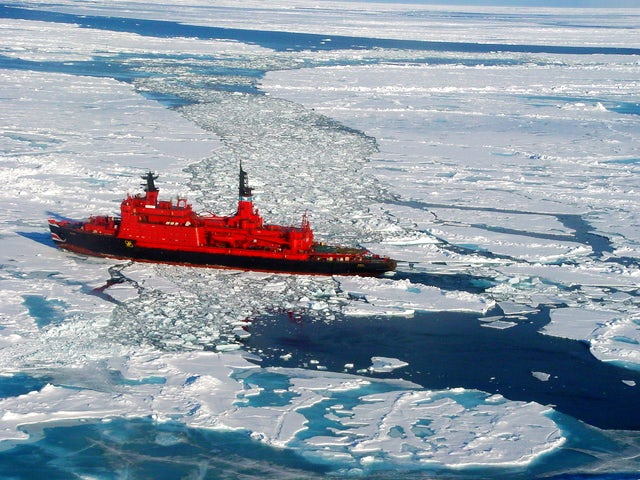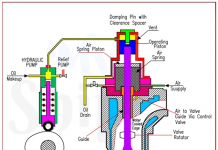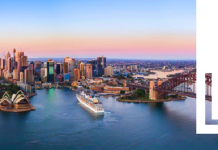
The IMO has accepted the International Code for the Ships Operating in the Polar Waters & related amendments to make it obligatory under both the International Convention for the Safety of the Life at Sea (SOLAS) & the International Convention for the Prevention of Pollution from the Ships (MARPOL). The Polar Code enforced on 1st Jan. 2017. This marks an significant milestone in the IMO work to protect ships & people aboard them, both seafarers & the passengers, in the severe environment of the waters surrounding the two poles.
Polar Code & the SOLAS amendments were accepted in the 94th session of the IMO’s Maritime Safety Committee (MSC), in the year November 2014; the environmental provisions & MARPOL amendments were accepted during the 68th session of the Marine Environment Protection Committee (MEPC) in May 2015.
Polar Code summary
The Polar Code is considered to include the full range of shipping related matters related to navigation in waters covering the two poles – ship design, construction & the equipment; operational & training analysis; search & rescue; &, equally important, the safety of the unique environment & eco-systems of the polar regions.
Polar Code comprise the full span of design, construction, equipment, operational, training, search & rescue & environmental protection things related to ships sailing in the waters surrounding the two poles.
Training requirements
Chapter 12 of the Polar Code on manning & training explains that the companies should make sure that the masters, chief mates & the officers in charge of the navigational watch on board ships operating in the polar waters have completed required training, considering the policies of the International Convention on Standards of Training, Certification & Watchkeeping for the Seafarers (STCW) & its associated STCW Code.
Obligatory minimum prerequisite for the training & qualifications of masters & the deck officers on ships sailing in the polar waters were also accepted by the IMO’s Maritime Safety Committee(MSC) in November 2016. They become mandatory under the STCW Convention and the STCW Code from 1 July 2018.
Background
The safety of ships sailing in the severe, remote & unsafe polar areas & the protection of the pure environments covering the two poles have always been a matter of responsibility for the IMO & many related requirements, policies & suggestions have been developed over the years.
Trends and forecasts indicate that polar shipping will grow in volume and diversify in nature over the coming years and these challenges need to be met without compromising either safety of life at sea or the maintainability of the polar environments.
Ships sailing in the Arctic & Antarctic environments are vulnerable to the number of unusual risks. Bad weather conditions & the lack of good charts, communication systems & other navigational support causing challenges for the mariners. The remoteness of the areas creates rescue or clean up operations very difficult & costly. Cold temperatures also decreases the working of number of equipment of the ship, from deck machinery & emergency equipment to sea suctions. When ice is present, it can create additional loads on the hull, propulsion system & accessories.
Protection of the Antarctic from heavy grade oils
The MARPOL regulation, to save the Antarctic region from pollution by the heavy grade oils(HGO), was accepted by the MEPC, at its 60th session in the year March, 2010. The amendments enforced on 1st Aug. 2011.
The modification add a new chapter 9 to MARPOL Annex I with the new regulation 43 which restricts the transportation in bulk as cargo, or transportation & use as fuel, of: crude oils having a density at 15°C more than 900 kg/m3; oils, other than crude oils, having a density at 15°C more than 900 kg/m3 or a kinematic viscosity at 50°C more than 180 mm2/s; or bitumen, tar & their emulsions. An exception is predicted for vessels involved in securing the safety of ships or in a search & rescue operation.
Under the Polar Code ships are motivated not to use or carry heavy fuel oil in the Arctic.
Voyage planning in remote areas
IMO Assembly in the year Nov. 2007 accepted resolution A.999(25) recommendations on voyage planning for passenger ships sailing in isolated regions, in reply to the growing popularity of ocean travel for passengers & the desire for distant destinations, which leads to increasing numbers of passenger ships sailing in the isolated regions. When planning for voyages to isolated region, special importance should be given to the environmental nature of the area of sailing, the limited resources, & the navigational information.
Ship reporting in the Arctic region
The MSC(Maritime Safety Committee), at its 91st session in the year Nov. 2012, accepted a new obligatory ship reporting system “In the Barents Area (Barents SRS)” (proposed by Norway and the Russian Federation). The new mandatory ship reporting system will enforced at 0000 hours UTC on 1st June 2013.
All the ships with a gross tonnage(GT) of 5,000 & more; all tankers; all ships carrying dangerous cargoes; a vessel towing when the length of the tow surpass 200 metres; and any ship not under the command, confined in their ability to manoeuvre or having faulty navigational aids.



